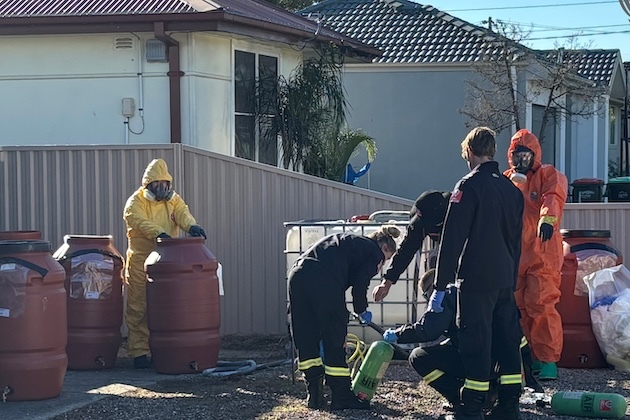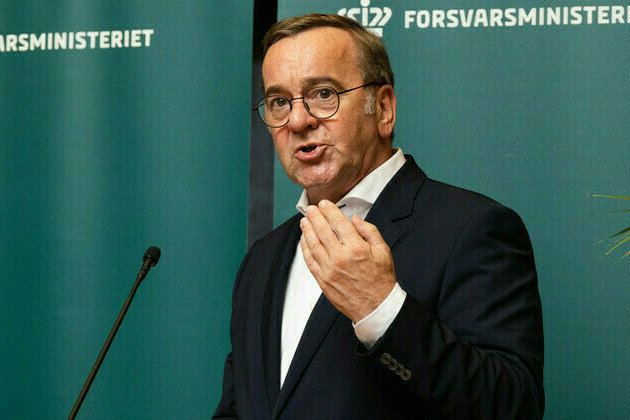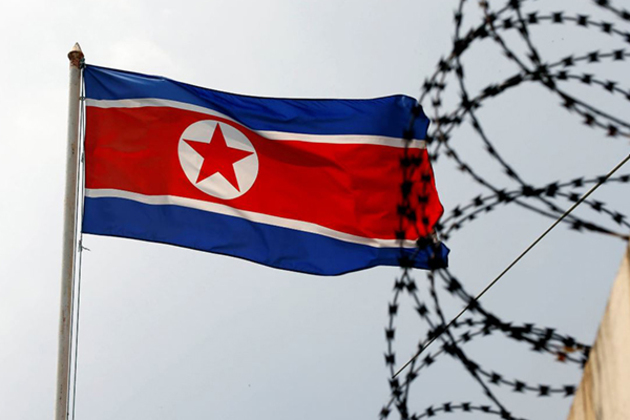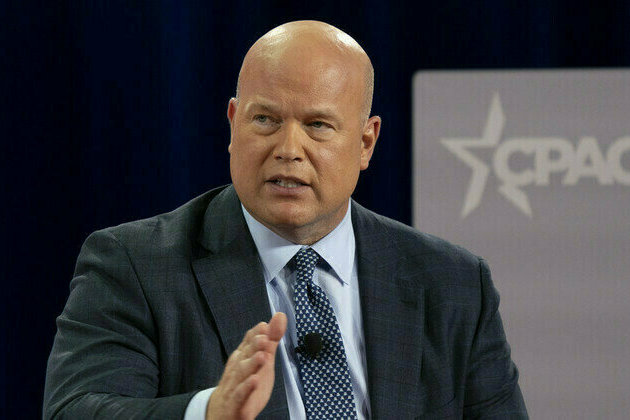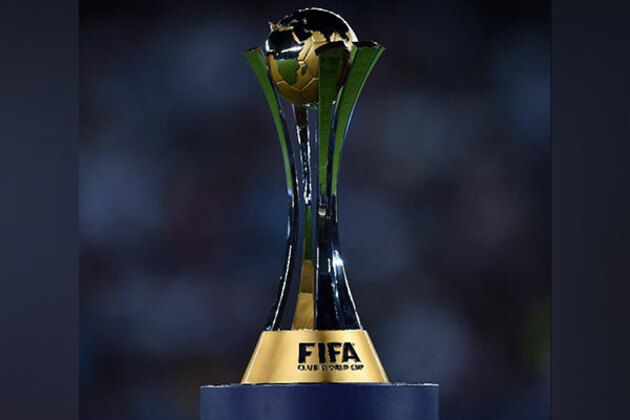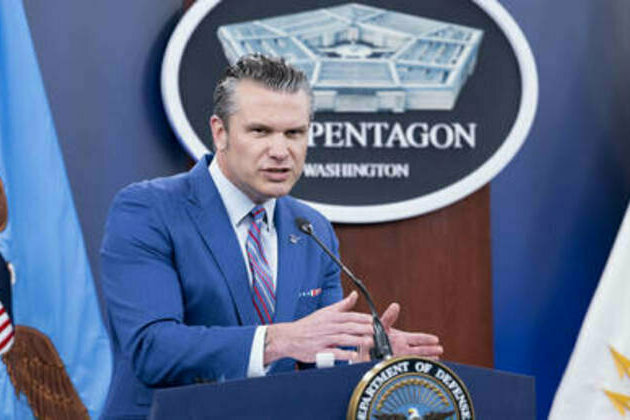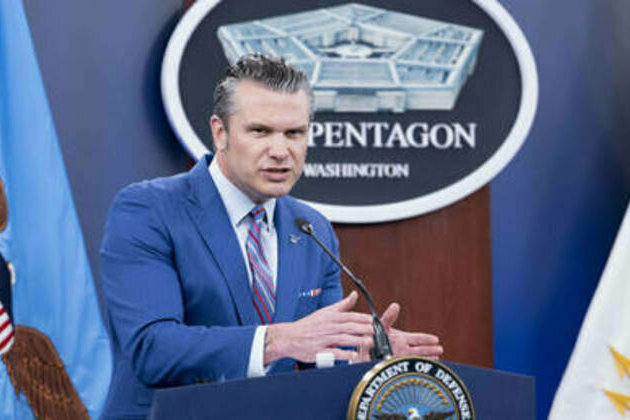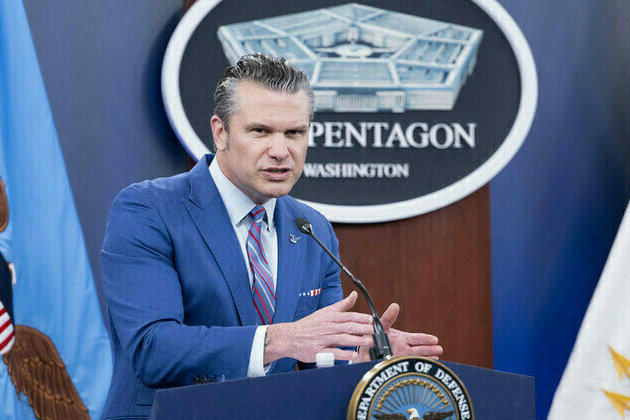NATO circles around China in more ways than one
RT.com
02 Jul 2025, 20:49 GMT+10
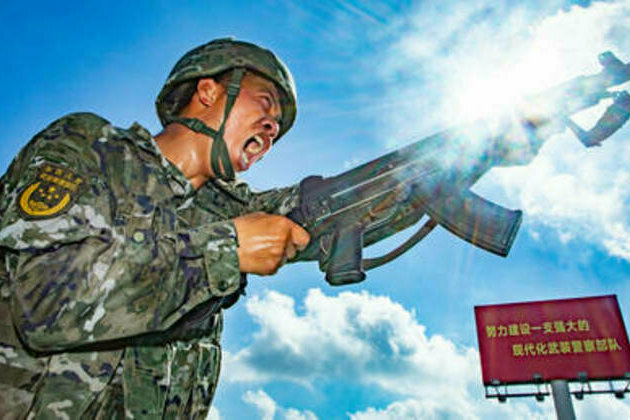
The alliance's latest summit avoided confronting Beijing but could not cover up the efforts to contain the Asian great power
The June NATO summit, held in The Hague, ended with a significant headline: a collective pledge to increase annual defense spending to 5% of GDP by 2035. This bold target, far exceeding the current 2% benchmark, signals a new era of militarization in the West, reflecting anxieties about a rapidly changing world order. While China was notably absent from the summit's final declaration, the specter of the Asian giant loomed large over the event. The omission appears tactical rather than strategic - a thinly veiled attempt to avoid escalating tensions, even as NATO members ramp up rhetoric and military preparations clearly aimed at containing Beijing.
Though the summit declaration remained silent on China, the alliance's leadership left little doubt about their true concerns. NATO's secretary general, Mark Rutte, used the summit sidelines to sound alarm bells over China's "massive military build-up". Echoing the now-familiar Western narrative, Rutte linked China - alongside Iran and North Korea - to Russia's military operations in Ukraine, accusing Beijing of supporting Moscow's war efforts.
These remarks followed Rutte's June address at London's Chatham House, where he described China's military expansion as happening "at breakneck speed" and labeled Beijing, Tehran, Pyongyang, and Moscow as an "awful foursome." This framing makes clear that the NATO establishment and US leadership regard China not as a partner or even a rival, but a threat.
The perception of China as an imminent danger was also echoed at the Shangri-La Dialogue in Singapore in May, where US Defense Secretary Pete Hegseth warned of a potential Chinese military move against Taiwan and reiterated Washington's commitment to regional allies - albeit while pressing them to increase their own defense budgets. His remarks left no doubt: the US strategic focus is firmly on the Indo-Pacific, even at the expense of its traditional European commitments.
In a notable diplomatic snub, the leaders of Australia, Japan, and South Korea - the so-called "Indo-Pacific partners" of NATO - cancelled their plans to attend the summit in The Hague. This decision, viewed by observers as a pointed message, undermined NATO's aspiration to consolidate its influence in the region.
Since the 2022 Madrid summit, when NATO adopted its "Strategic Compass" and for the first time classified China as a "systemic challenge," the alliance has moved steadily to incorporate the Asia-Pacific into its strategic thinking. It now considers developments in East Asia as directly relevant to Euro-Atlantic security. As such, NATO seeks deeper cooperation with Australia, Japan, South Korea, and New Zealand to uphold what it calls the "rules-based order" - a euphemism for Western hegemony.
However, the absence of these Indo-Pacific leaders suggests a growing discomfort with NATO's expanding footprint. For many regional actors, NATO's presence in Asia represents not stability, but the risk of being drawn into geopolitical conflicts under the guise of shared security.
Further adding to regional unease, French President Emmanuel Macron delivered a controversial message at the Shangri-La Dialogue, warning Beijing that NATO could be involved in Southeast Asia unless China convinces North Korea to withdraw its troops from Russia. This statement not only mischaracterized Beijing's independent foreign policy and its complex relations with Pyongyang but also marked a sharp departure from France's previous resistance to NATO's involvement in Asia-Pacific matters. Such remarks, however, are increasingly aligned with the alliance's real trajectory: NATO is no longer content with transatlantic defense. Its strategic horizon is now global, and its compass points East.
NATO-China relations, once limited and mostly symbolic, are now strained to the point of near-hostility. The first Chinese representative visited NATO headquarters in 2002, and both sides cooperated on anti-piracy operations in the Gulf of Aden after 2008. Since then, however, the relationship has eroded amid intensifying geopolitical competition and diverging security philosophies.
Beijing has become increasingly vocal in its criticism. Chinese authorities responded sharply to Rutte's remarks at The Hague, accusing NATO of spreading disinformation about China's stance on Ukraine and conflating the Taiwan question - which Beijing insists is a purely domestic matter - with a war between states. Chinese officials emphasized that NATO's role in the Asia-Pacific is unwelcome and destabilizing, viewing the alliance as a Cold War relic now repurposed to uphold US dominance and contain China's rise.
For China, NATO is not just a military alliance, but a political tool used by Washington to limit Europe's engagement with Beijing. From this perspective, NATO's eastward ambitions threaten to derail the potential for constructive China-Europe cooperation, replacing it with division and distrust. China's concerns are not limited to NATO. The revival of the Quadrilateral Security Dialogue (QUAD), the emergence of the "Squad," and the 2021 formation of AUKUS - a trilateral pact between the US, UK, and Australia - have only deepened Beijing's fears of encirclement.
The AUKUS agreement, under which Australia is to receive nuclear-powered submarines from the US worth $240 billion, has introduced a new and dangerous element into regional security dynamics. Canberra will gain long-range strike capability for the first time and become only the second nation - after the UK - to receive access to US nuclear propulsion technology. Though the Trump administration has initiated a formal review of AUKUS, few expect significant changes. On the contrary, the pact is likely to reinforce the militarization of the region and increase the risk of nuclear proliferation.
In contrast to NATO's bloc-based approach, China promotes a regional security framework rooted in multilateralism, inclusiveness, and dialogue. Beijing advocates for an ASEAN-centered architecture and supports institutions like the ASEAN Defense Ministers' Meeting Plus (ADMM-Plus), the Code for Unplanned Encounters at Sea (CUES), and the East Asia Summit. It also backs the Conference on Interaction and Confidence Building Measures in Asia (CICA) and has launched the Global Security Initiative to advance regional stability. Most significantly, the Shanghai Cooperation Organization (SCO) has emerged as a key platform for Eurasian states to coordinate on security, with the June meeting of defense ministers in Qingdao underscoring its role in promoting collective peace without resorting to confrontation or hegemonism.
The NATO summit may have avoided naming China, but it failed to conceal the reality of growing confrontation. While the alliance doubles down on military spending and expands its strategic reach into Asia, the Global South and a number of key Asia-Pacific states appear increasingly wary of NATO's global ambitions.
As the world stands at a strategic crossroads, two competing visions of international security are on display. On one side, NATO and its partners advocate a "rules-based order" backed by military alliances and deterrence. On the other, China offers a model grounded in multipolarity, multilateral cooperation, consensus-building, and mutual respect.
The choice, increasingly, is not between East vs. West - but between confrontation and coexistence.
 Share
Share
 Tweet
Tweet
 Share
Share
 Flip
Flip
 Email
Email
Watch latest videos
Subscribe and Follow
Get a daily dose of Yorkshire Observer news through our daily email, its complimentary and keeps you fully up to date with world and business news as well.
News RELEASES
Publish news of your business, community or sports group, personnel appointments, major event and more by submitting a news release to Yorkshire Observer.
More InformationWorld
SectionMethionine Restriction Could Extend Lifespan, Boost Health
VILNIUS, Lithuania – A growing body of research suggests that selectively restricting a single nutrient in our diet could have profound...
Western Sydney raid results in seizure of $25 Million in drugs
SYDNEY, NSW, Australia - , Australian Federal Police (AFP) have shut down a secret drug lab in Sydney's west and seized more than 100kg...
Germany announces deployment of warships to Arctic
Defense Minister Boris Pistorius has accused Russia of militarizing the region Germany will send navy ships to patrol Arctic waters...
NATO circles around China in more ways than one
The alliance's latest summit avoided confronting Beijing but could not cover up the efforts to contain the Asian great power ...
WI's Kraigg Braithwaite speaks on playing 100 Tests, calls his journey "pretty tough"
St' George [Grenada], July 2 (ANI): Ahead of the second Test against Australia, former West Indies skipper and batter Kraigg Braithwaite,...
North Korea to send 30,000 more troops to fight for Russia: Report
Pyongyang [North Korea], July 2 (ANI): North Korea plans to triple its troop deployment to Russia to support its military efforts in...
UK Sports
SectionUS confirms suspension of military aid to Kiev
This is what America first looks like, envoy to NATO Matthew Whitaker says Washington is suspending its supply of weapons to Ukraine...
Real Madrid, Borussia Dortmund storm into quarterfinals of FIFA Club World Cup 2025
Florida [US], July 2 (ANI): Spanish giants Real Madrid and German club Borussia Dortmund on Wednesday became the last two teams to...
Divyanshi Bhowmick wins historic gold at Asian Youth TT Championships
Tashkent [Uzbekistan], July 2 (ANI): India's Divyanshi Bhowmick scripted history at the 29th Asian Youth Table Tennis Championships...
Pentagon halts weapons supplies to Kiev over depleting stockpiles - media
The US has reportedly paused deliveries of precision missiles, artillery shells, and air defense interceptors as its own arsenal runs...
Pentagon halts weapons supplies to Kiev - media
The US has reportedly paused deliveries of precision missiles, artillery shells, and air defense interceptors as its own arsenal runs...
Pentagon halts weapons supplies to Kiev media
The US has reportedly paused deliveries of precision missiles, artillery shells, and air defense interceptors as its own arsenal runs...


